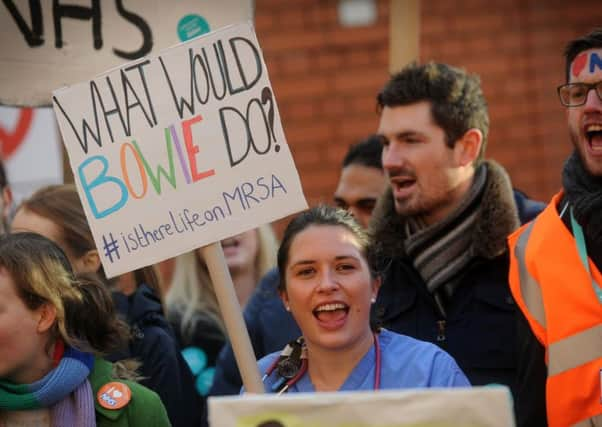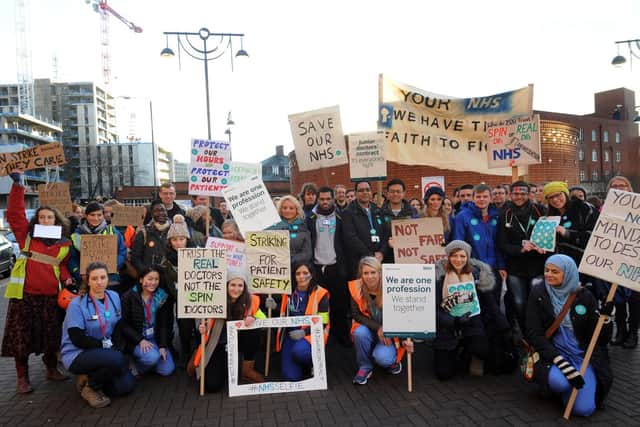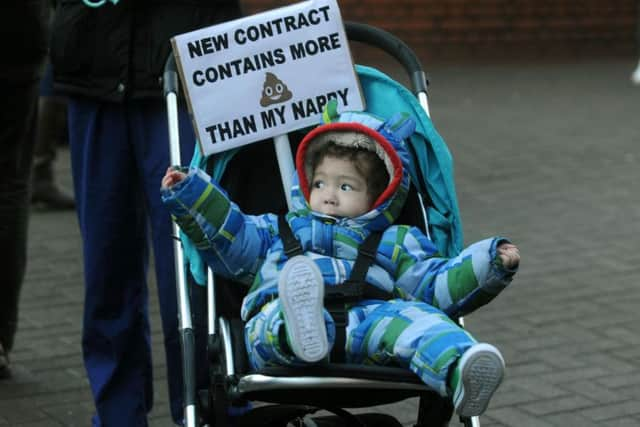Yorkshire clinicians hope move to suspend second junior doctor strike signals progress in contract talks


Thousands of non-urgent operations would have been affected by the two-day partial walk-out where only juniors working in emergency care would go into work from January 26 at 8am.
The British Medical Association (BMA) said it was being postponed to give NHS trusts as much notice as possible to avoid disruption to patients but also warned that “significant progress” needed to be made to avoid the full nine-hour strike planned for February 10 as “differences still exist” on issues like the recognition of unsocial working hours.
Advertisement
Hide AdAdvertisement
Hide AdIt follows a 24-hour emergency care only strike by juniors in England on January 12 in protest against the Government’s plans to impose a new contract on trainees by August. The strike disrupted 4,000 operations.


Further talks between the Government, NHS Employers and the BMA have been scheduled at the Advisory, Conciliation and Arbitration Service (Acas) on Thursday and Friday.
Lucie Cocker, a BMA representative at the Mid Yorkshire Hospitals NHS Trust, is hopeful that the move is a sign of progress. She said: “They can’t talk about what’s going on within the discussions so there is a lot of hypothesising at the moment.
“I’m really hopeful this perhaps shows we are going in a positive direction in talks.”
Advertisement
Hide AdAdvertisement
Hide AdThe BMA’s junior doctor committee chair Johann Malawana said the strike held on January 12, which saw doctors stage pickets outside every major hospital in Yorkshire, had sent a “clear message” to the Government. He said: “Our focus is now on building on early progress made in the current set of talks. On this basis, the BMA has today taken the decision to suspend the industrial action planned for January 26 to 28.”


He continued: “Significant, concrete progress will need to be made if future action, currently planned for February 10, is to be averted.”
On Monday, Prime Minister David Cameron explained that the Government has not ruled out imposing its new contract on juniors if talks do not resolve the dispute as it would effectively hand a “veto” to the BMA over the development of the NHS.
Mr Cameron’s official spokeswoman said: “We have always been clear that we want to engage with the BMA to find a solution and it is important now that we continue to all sit around the table in a constructive spirit and work to find a solution.”
Advertisement
Hide AdAdvertisement
Hide AdThe Government’s last contract offer included an 11 per cent basic pay rise. But this was offset by plans to cut the number of hours for which juniors can claim extra pay for unsocial hours.


The BMA argues that the proposed deal is “unsafe and unfair” on both doctors and patients as it would also see working hour safeguards scrapped. The Government says its changes will help to create a “truly seven-day NHS” and that only one per cent of doctors would lose pay.
The junior doctor dispute in England comes as hospitals all over the UK are coming under unprecedented pressure.
It emerged yesterday that A&E departments in Wales are at “critical levels”, partly due to issues recruiting emergency care consultants and ‘bed blocking’ problems.
Advertisement
Hide AdAdvertisement
Hide AdMeanwhile NHS patients in parts of Kent could be treated at hospitals in Calais and Le Touquet, in France, possibly by the end of April.
NHS managers have signed contracts for procedures including orthopaedics, ear nose and throat and cataract surgery but patients will have to pay for travel.